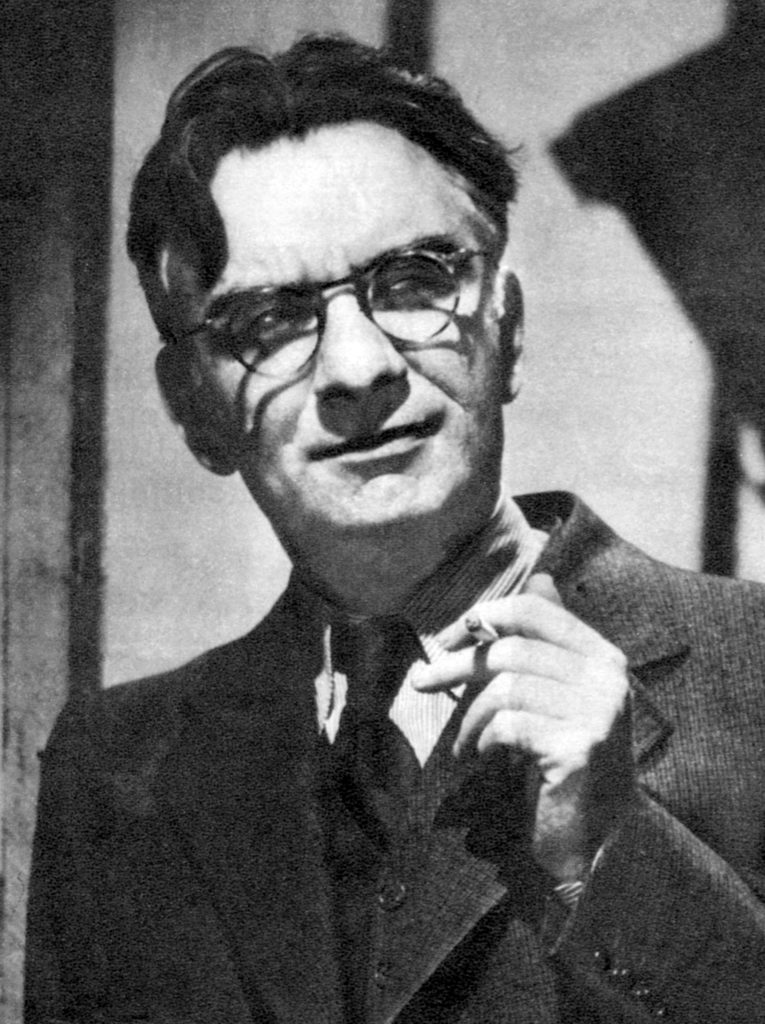Celebrating a Forgotten Author

By Noah Hale
James M. Cain was born on July 1, 1892 in Annapolis and has been one of the city’s most controversial figures ever since.
A novelist, journalist, and screenwriter, he’s best known for his masterpieces of noir fiction, including The Postman Always Rings Twice (1934), Double Indemnity (1936), and Mildred Pierce (1941). His fiction gained the reputation for being nitty-gritty and wound up in its very own genre called “hard-boiled” fiction, a special crime category that lumped detectives, corrupt politicians, sex, and violence all together. One of his biographers, David Madden, calls him “the 20-minute egg of the hard-boiled school.” That is to say, very, very hard.
Cain didn’t see it that way. As a boy, Cain grew up in a faculty duplex at St. John’s College (now the Paca-Carroll dorm) where his father taught English and mathematics. The eldest of five children, Cain was often described as a klutz and a misfit. His parents were rigorously educated—his father had gone to Yale and his mother was an opera singer—and often drilled the young Cain in grammar until it became “impeccable.” As a result, he’d been encouraged by his parents to skip two grades, up from third to fifth, which Cain quickly regretted. He became self-conscious, particularly noting how his classmates were well ahead of him in puberty.
When he turned 11, Cain and his family moved to Chestertown where he became a voracious reader. Still, he was bullied and felt as if he didn’t belong there. It was around this time, though, that he had developed an interest in the colloquial speech of working class people—the “vulgate,” as he called it—which he had picked up from local bricklayers. It would later influence the way he penned his dialogue: simple, short, and true to life.
Cain spent a while doing odd jobs after graduating from Washington College—he was a teacher, a road inspector, an insurance salesman, and even a Victrola dealer before entering journalism. In 1917 he was hired as a police reporter for the Baltimore American before a stint as a signalman for the military. After he returned, he went to work for the Baltimore Sun, then as a professor at St. John’s College for a year before he was fired for arguing with the college president.
Maryland and the Eastern Shore always seemed to be the wrong place for Cain. He found better luck in California, the setting of his first and most successful novel, The Postman Always Rings Twice. In an interview, he said, “When I got to California I found the people there spoke my lingo. They use a little better grammar in California than they do in Maryland.”
But even if he felt more at home on the West Coast, it still seemed like the Eastern Shore had a special place in Cain’s heart. In a 1933 cover story for the American Mercury magazine, Cain spoke about the relative comfort of Delmarva, comparing its predictable seasons with the alien ones of Los Angeles.
“The citrus trees flower and bear all at the same time: you never get a riot of blossoms as you do in Western Maryland when the apple trees are in bloom, or a catharsis of stinking, primitive accomplishment as you do in Delaware when the tomatoes go to the cannery. Here [Los Angeles] the oil wells flow right along, so do the orange trees, so does everything. It is terrifying.”
In 1947, Cain and his wife returned to Maryland and settled in Hyattsville, where he lived for the rest of his life, continuing to publish novels into his 80s.
In honor of his birthday, let’s toast this father of the hard-boiled genre and master of noir, an accomplished yet under-celebrated figure in Maryland’s history that made an indelible mark on literature.
